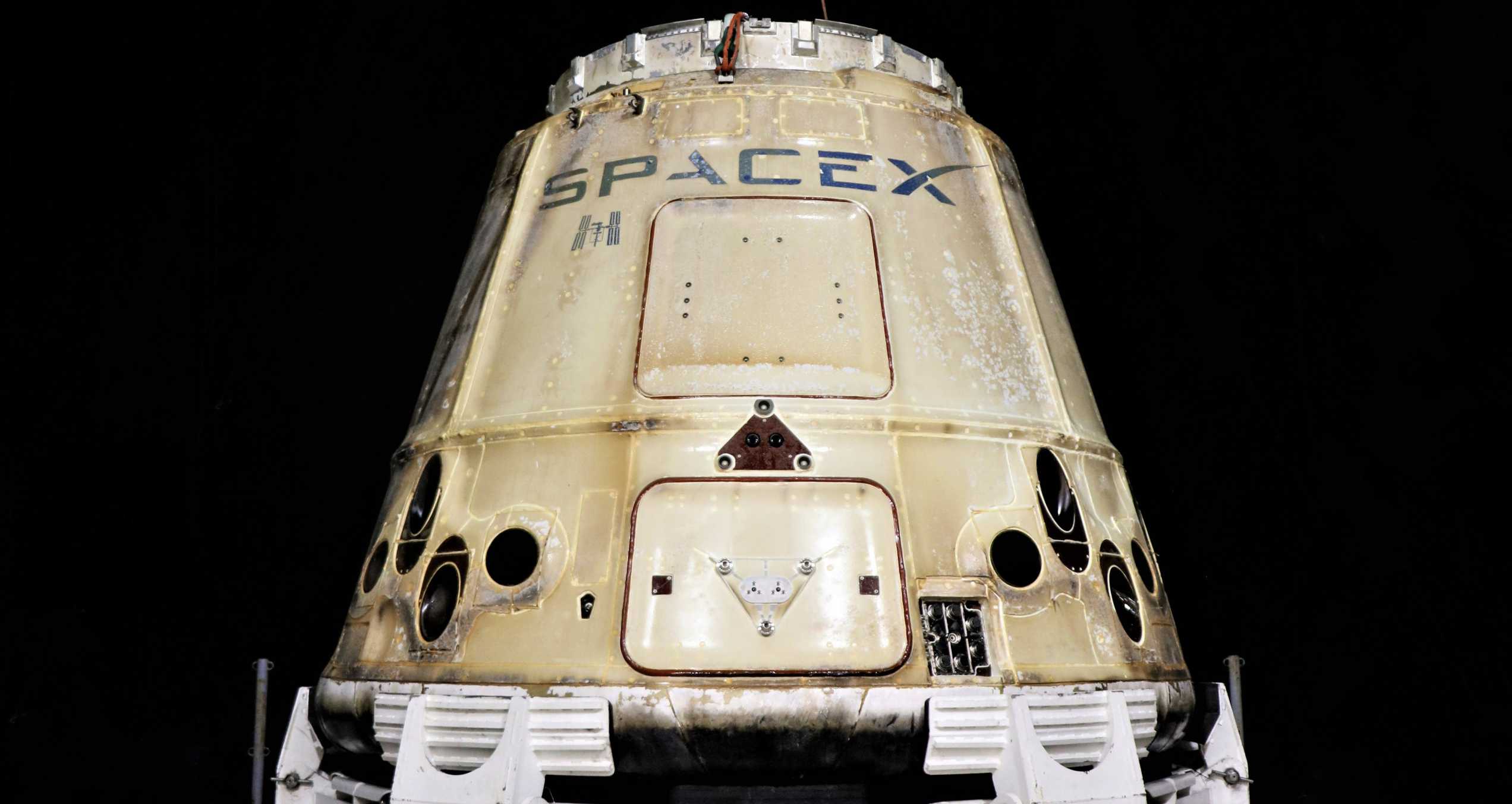
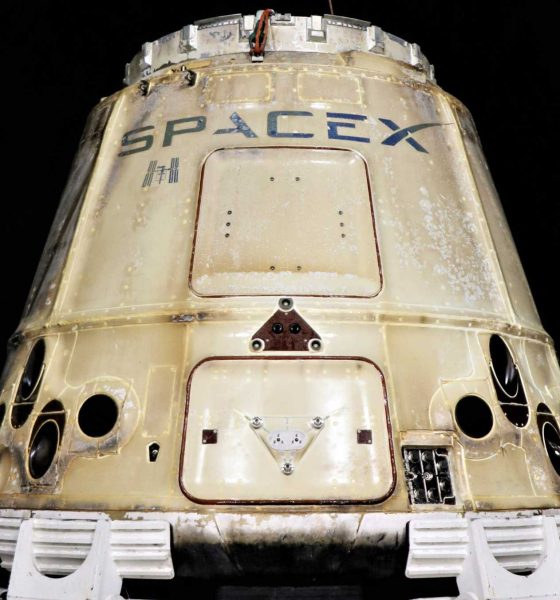
News
SpaceX Dragon spacecraft returns to California port for the last time
SpaceX has returned one of its reusable Dragon spacecraft to the Port of Los Angeles for the last time, wrapping up almost a decade of West Coast recovery operations as the company prepares to move East.
Marking the fully successful completion of Cargo Dragon’s CRS-20 space station resupply mission for NASA, the spacecraft’s arrival in port aboard recovery vessel NRC Quest is SpaceX’s 21st since December 2010. CRS-20 was the original Cargo Dragon spacecraft’s very last mission, meaning that the historic vehicle will have effectively entered retirement once SpaceX has finished capsule C112’s post-flight processing. More likely than not, it and its siblings may soon find themselves displayed in SpaceX facilities and aerospace museums across the US, a fitting end for an orbital spacecraft that effectively launched SpaceX onto the world’s spaceflight stage.
Cargo Dragon is by no means the last of its kind, however. SpaceX has already launched Crew Dragon – also known as Dragon 2 – on a flawless March 2019 orbital debut. An uncrewed variant of the same upgraded spacecraft will soon replace Cargo Dragon for uncrewed space station resupply missions under a second NASA Commercial Resupply Services contract (CRS2). For a variety of reasons, SpaceX has decided to move all Dragon 2 recovery operations to its Port Canaveral, Florida hub, now also the sole home of Falcon booster drone ship recoveries and payload fairing catch attempts. This means that April 9th’s Cargo Dragon homecoming is the last time a SpaceX spacecraft will return to the West Coast — a bittersweet end of an era.
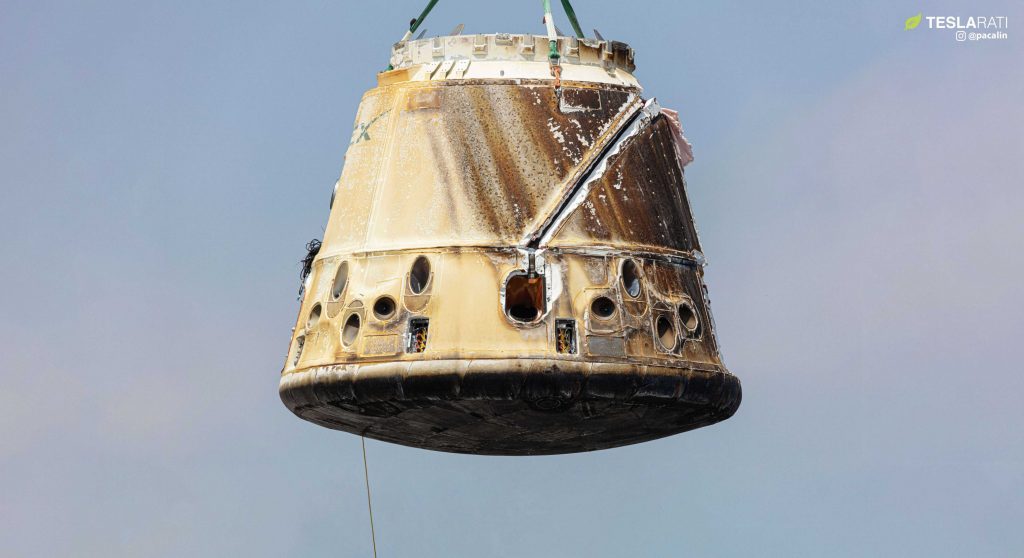
Upon its safe return to shore, Cargo Dragon C112 is now the third Dragon spacecraft to successfully complete three separate orbital resupply missions, as well as the ninth Dragon reuse overall. While the recovered spacecraft may look like a very well-toasted marshmallow, all that visible wear and tear comes from a single orbital-velocity reentry, as SpaceX extensively refurbishes each Dragon before they are reused.
Before Cargo Dragon C112 lifted off on a Falcon 9 rocket for the third time on March 7th, it looked about as pristine as it did the first time it departed SpaceX’s Hawthorne, California factory in 2016. Aside from a duo of International Space Station badges added to the spacecraft’s exterior, it is functionally and visually identical, although parts of the capsule – like landing parachutes and its ablative heat shield – must be replaced after each mission.
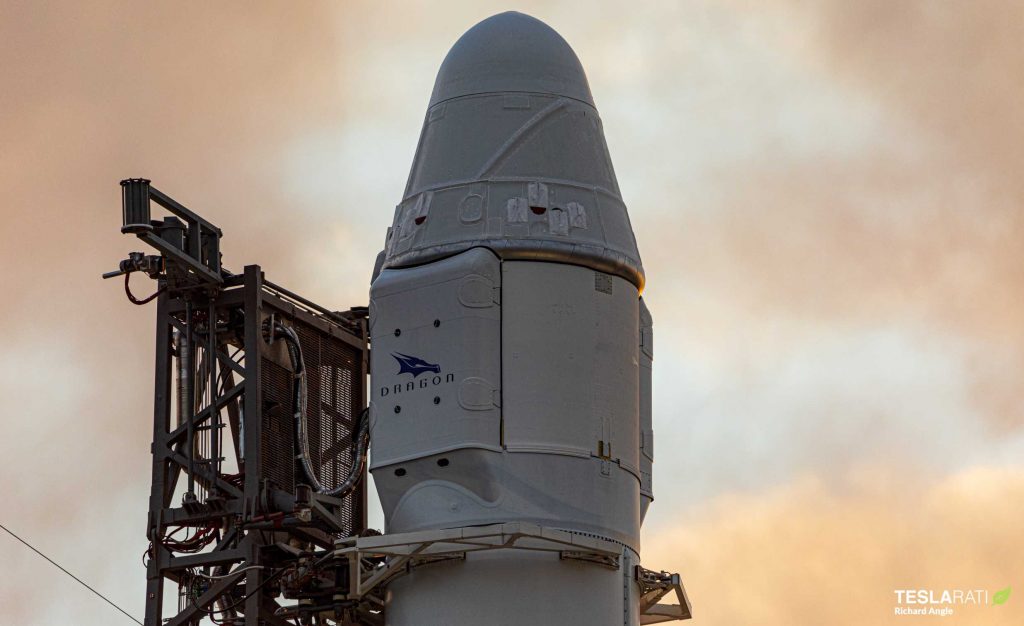
Still, despite having to clean and resurface the spacecraft’s white thermal protection, replace heat shields, fabricate new disposable trunk sections, and much more for every launch, SpaceX CEO Elon Musk has stated that even the first Dragon reuse (likely the most expensive) was at least 50% cheaper than building a new spacecraft. Additionally, SpaceX clearly began to find its stride on Dragon capsule C112’s CRS-20 refurbishment, completing the process with record-breaking speed.
As previously discussed on Teslarati, “measured from splashdown to the capsule’s shipment to the launch pad, SpaceX may have spent less than a year refurbishing Cargo Dragon C112, potentially more than a 50% faster than all prior Dragon refurbishment operations.” Cargo Dragon’s Dragon 2 replacement is expected to be far easier to refurbish, while also potentially allowing for up to five orbital missions per spacecraft, while Dragon 1’s design was capped at three missions.
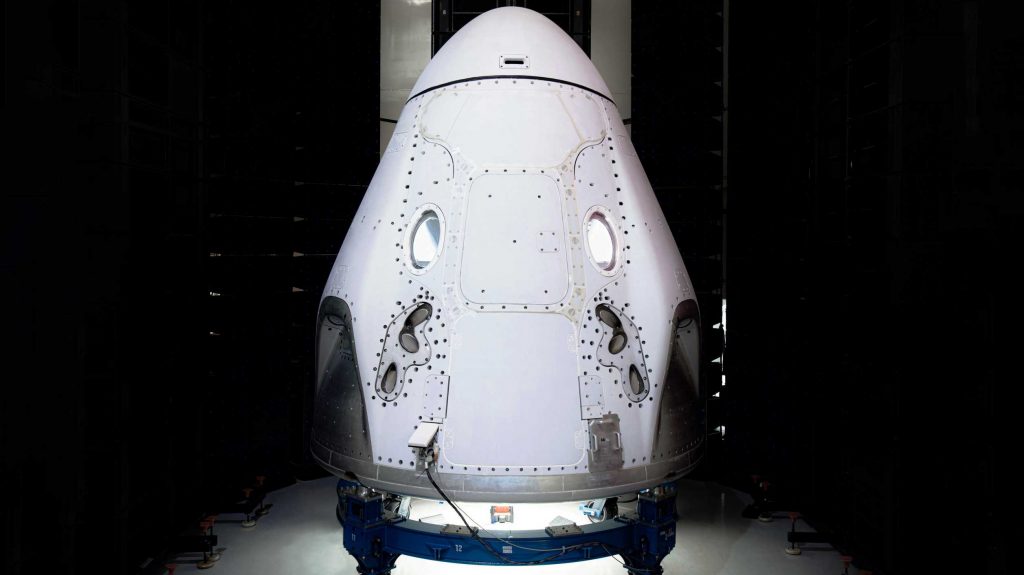
CRS-21 – SpaceX’s first NASA CRS2 mission and the first planned Cargo Dragon 2 launch – is scheduled for no earlier than (NET) October 2020. Meanwhile, Crew Dragon’s “Demo-2” astronaut debut is set to launch as early as late May. If successful, NASA says Crew Dragon’s first operational astronaut launch could happen as early as a month or two after splashdown (~Q4 2020).
After completing their orbital duties, all of those upgraded Dragon spacecraft are scheduled to reenter and splash down in the Atlantic Ocean, where they will be brought back to Cape Canaveral for processing and refurbishment. In the event that weather in the Atlantic Ocean is unacceptable for recovery operations, SpaceX has developed a backup recovery zone in the Gulf of Mexico. In short, it’s possible that Cargo Dragon’s April 7th Port of Los Angeles return will be the last time ever that the US West Coast supports orbital spacecraft recovery operations.

News
Tesla FSD (Supervised) fleet passes 8.4 billion cumulative miles
The figure appears on Tesla’s official safety page, which tracks performance data for FSD (Supervised) and other safety technologies.

Tesla’s Full Self-Driving (Supervised) system has now surpassed 8.4 billion cumulative miles.
The figure appears on Tesla’s official safety page, which tracks performance data for FSD (Supervised) and other safety technologies.
Tesla has long emphasized that large-scale real-world data is central to improving its neural network-based approach to autonomy. Each mile driven with FSD (Supervised) engaged contributes additional edge cases and scenario training for the system.
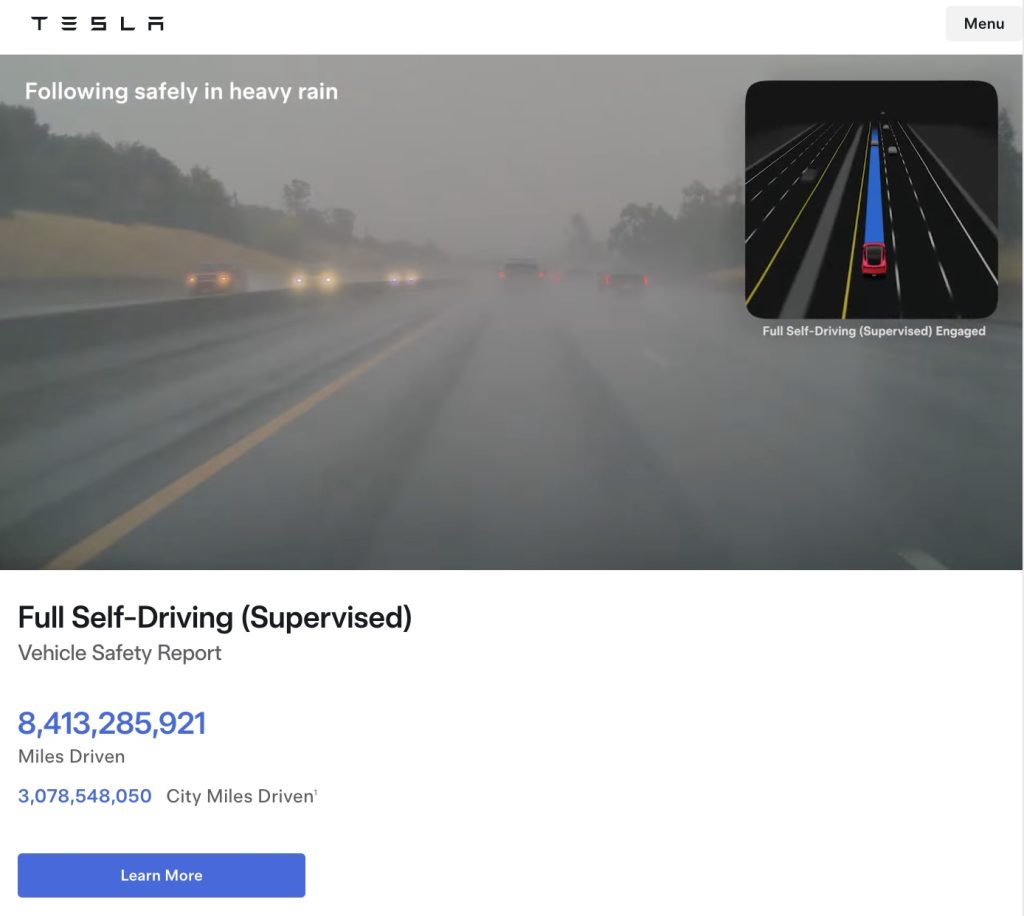
The milestone also brings Tesla closer to a benchmark previously outlined by CEO Elon Musk. Musk has stated that roughly 10 billion miles of training data may be needed to achieve safe unsupervised self-driving at scale, citing the “long tail” of rare but complex driving situations that must be learned through experience.
The growth curve of FSD Supervised’s cumulative miles over the past five years has been notable.
As noted in data shared by Tesla watcher Sawyer Merritt, annual FSD (Supervised) miles have increased from roughly 6 million in 2021 to 80 million in 2022, 670 million in 2023, 2.25 billion in 2024, and 4.25 billion in 2025. In just the first 50 days of 2026, Tesla owners logged another 1 billion miles.
At the current pace, the fleet is trending towards hitting about 10 billion FSD Supervised miles this year. The increase has been driven by Tesla’s growing vehicle fleet, periodic free trials, and expanding Robotaxi operations, among others.
With the fleet now past 8.4 billion cumulative miles, Tesla’s supervised system is approaching that threshold, even as regulatory approval for fully unsupervised deployment remains subject to further validation and oversight.
Elon Musk
Elon Musk fires back after Wikipedia co-founder claims neutrality and dubs Grokipedia “ridiculous”
Musk’s response to Wales’ comments, which were posted on social media platform X, was short and direct: “Famous last words.”
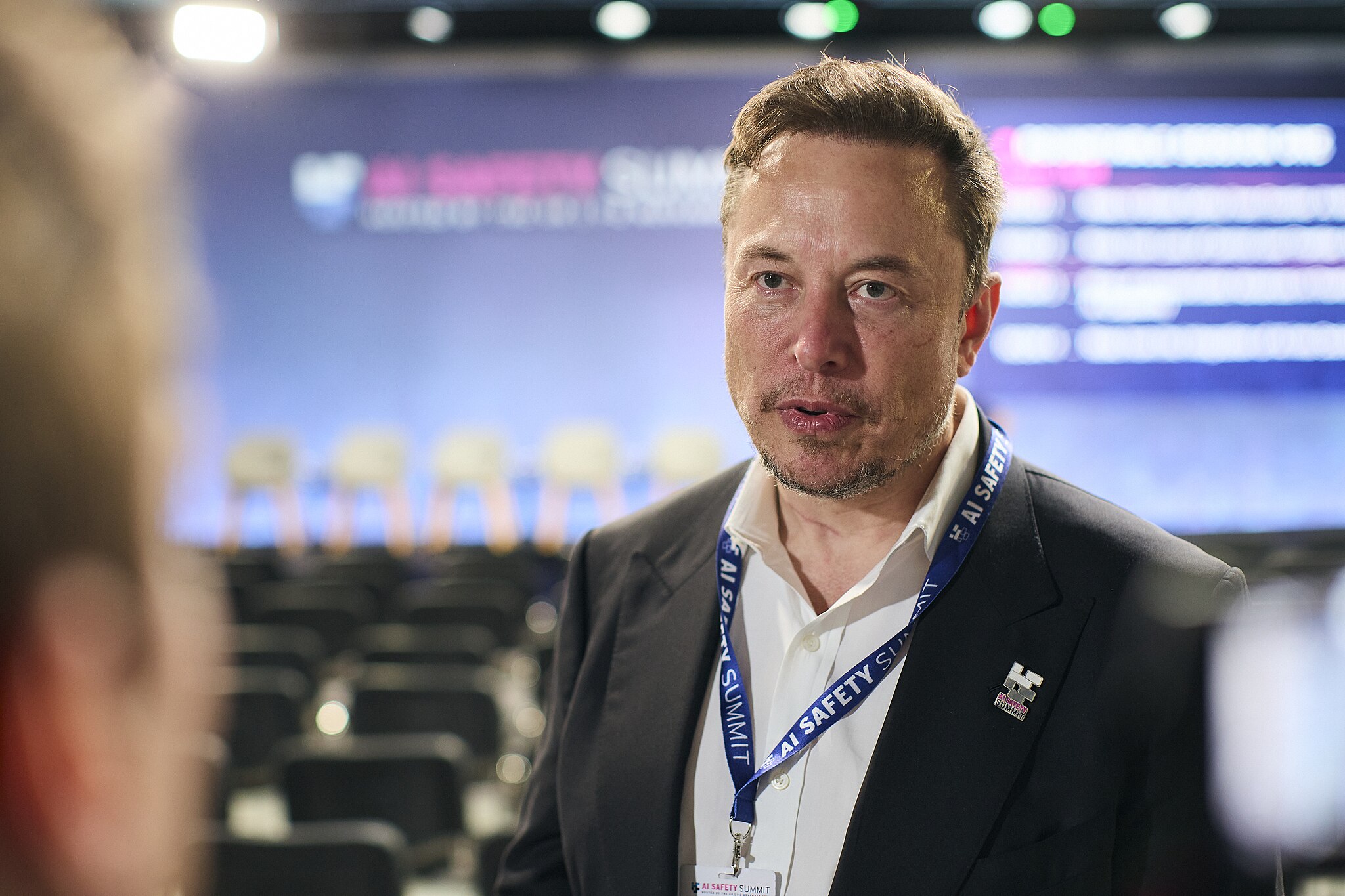
Elon Musk fired back at Wikipedia co-founder Jimmy Wales after the longtime online encyclopedia leader dismissed xAI’s new AI-powered alternative, Grokipedia, as a “ridiculous” idea that is bound to fail.
Musk’s response to Wales’ comments, which were posted on social media platform X, was short and direct: “Famous last words.”
Wales made the comments while answering questions about Wikipedia’s neutrality. According to Wales, Wikipedia prides itself on neutrality.
“One of our core values at Wikipedia is neutrality. A neutral point of view is non-negotiable. It’s in the community, unquestioned… The idea that we’ve become somehow ‘Wokepidea’ is just not true,” Wales said.
When asked about potential competition from Grokipedia, Wales downplayed the situation. “There is no competition. I don’t know if anyone uses Grokipedia. I think it is a ridiculous idea that will never work,” Wales wrote.
After Grokipedia went live, Larry Sanger, also a co-founder of Wikipedia, wrote on X that his initial impression of the AI-powered Wikipedia alternative was “very OK.”
“My initial impression, looking at my own article and poking around here and there, is that Grokipedia is very OK. The jury’s still out as to whether it’s actually better than Wikipedia. But at this point I would have to say ‘maybe!’” Sanger stated.
Musk responded to Sanger’s assessment by saying it was “accurate.” In a separate post, he added that even in its V0.1 form, Grokipedia was already better than Wikipedia.
During a past appearance on the Tucker Carlson Show, Sanger argued that Wikipedia has drifted from its original vision, citing concerns about how its “Reliable sources/Perennial sources” framework categorizes publications by perceived credibility. As per Sanger, Wikipedia’s “Reliable sources/Perennial sources” list leans heavily left, with conservative publications getting effectively blacklisted in favor of their more liberal counterparts.
As of writing, Grokipedia has reportedly surpassed 80% of English Wikipedia’s article count.
News
Tesla Sweden appeals after grid company refuses to restore existing Supercharger due to union strike
The charging site was previously functioning before it was temporarily disconnected in April last year for electrical safety reasons.
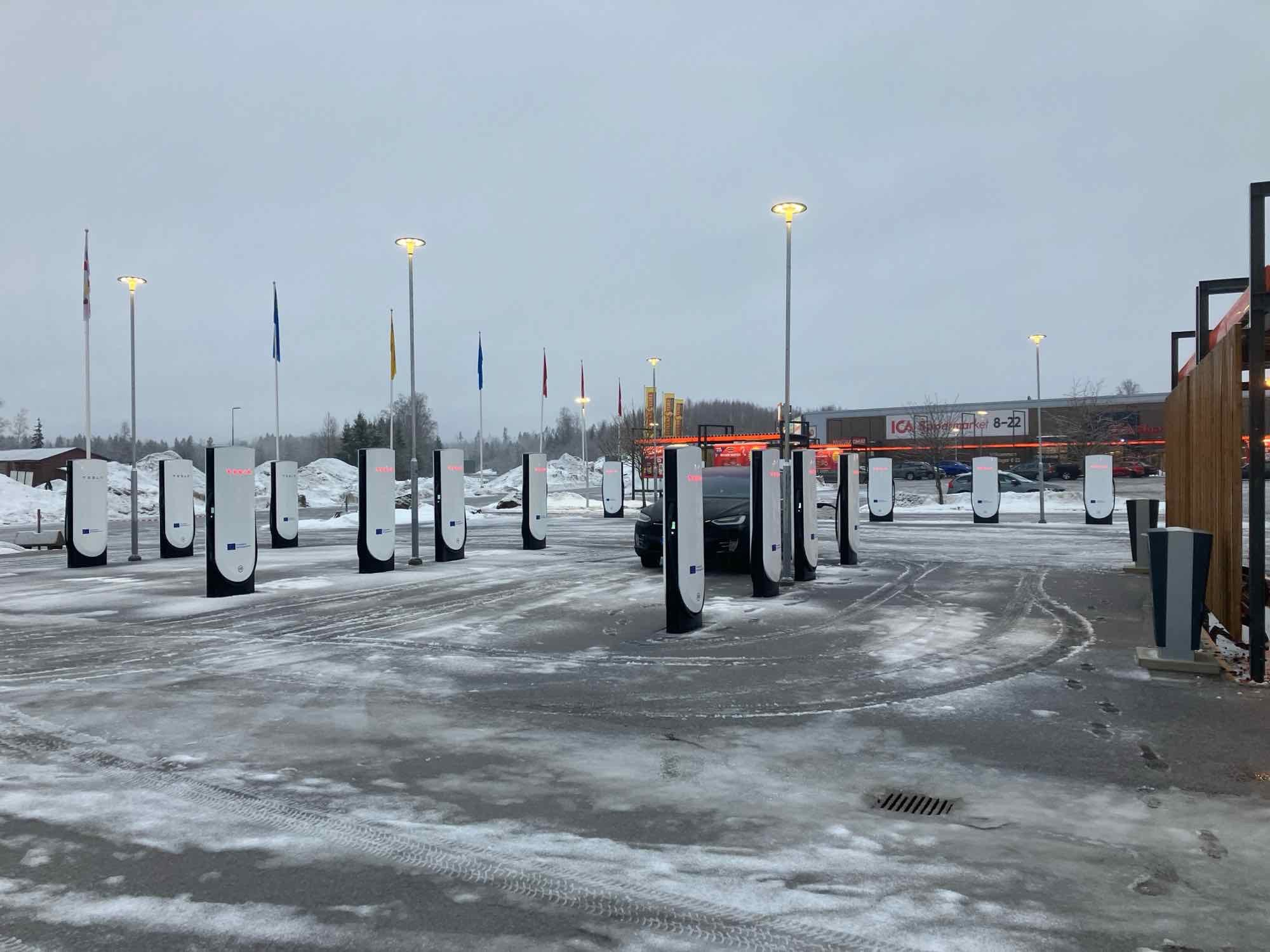
Tesla Sweden is seeking regulatory intervention after a Swedish power grid company refused to reconnect an already operational Supercharger station in Åre due to ongoing union sympathy actions.
The charging site was previously functioning before it was temporarily disconnected in April last year for electrical safety reasons. A temporary construction power cabinet supplying the station had fallen over, described by Tesla as occurring “under unclear circumstances.” The power was then cut at the request of Tesla’s installation contractor to allow safe repair work.
While the safety issue was resolved, the station has not been brought back online. Stefan Sedin, CEO of Jämtkraft elnät, told Dagens Arbete (DA) that power will not be restored to the existing Supercharger station as long as the electric vehicle maker’s union issues are ongoing.
“One of our installers noticed that the construction power had been backed up and was on the ground. We asked Tesla to fix the system, and their installation company in turn asked us to cut the power so that they could do the work safely.
“When everything was restored, the question arose: ‘Wait a minute, can we reconnect the station to the electricity grid? Or what does the notice actually say?’ We consulted with our employer organization, who were clear that as long as sympathy measures are in place, we cannot reconnect this facility,” Sedin said.
The union’s sympathy actions, which began in March 2024, apply to work involving “planning, preparation, new connections, grid expansion, service, maintenance and repairs” of Tesla’s charging infrastructure in Sweden.
Tesla Sweden has argued that reconnecting an existing facility is not equivalent to establishing a new grid connection. In a filing to the Swedish Energy Market Inspectorate, the company stated that reconnecting the installation “is therefore not covered by the sympathy measures and cannot therefore constitute a reason for not reconnecting the facility to the electricity grid.”
Sedin, for his part, noted that Tesla’s issue with the Supercharger is quite unique. And while Jämtkraft elnät itself has no issue with Tesla, its actions are based on the unions’ sympathy measures against the electric vehicle maker.
“This is absolutely the first time that I have been involved in matters relating to union conflicts or sympathy measures. That is why we have relied entirely on the assessment of our employer organization. This is not something that we have made any decisions about ourselves at all.
“It is not that Jämtkraft elnät has a conflict with Tesla, but our actions are based on these sympathy measures. Should it turn out that we have made an incorrect assessment, we will correct ourselves. It is no more difficult than that for us,” the executive said.








